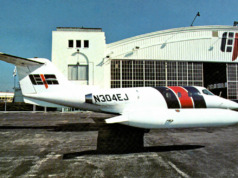
“Your call is important to us…” Or so they said. Or rather, as the recording repeated every two minutes – for two and half hours. That’s how long we held (on speaker phone, at least), waiting for a service representative to respond to our as-yet-to-be-voiced request to restore an essential household service. We began to wonder if anybody was in there.
Granted, these are not normal times. And perhaps we weren’t the only ones experiencing a service interruption. So we selected their “call back at a specific time” option. And to be fair, they did call back at the appointed hour, by computer. We held for another half hour before a company rep came on the line.
When the technician finally arrived, he fixed the problem quickly and efficiently, observing all company safety protocol, and – best of all – did so cheerfully.
Now it’s probable that the company had its customer service reps working from home, ensconced in safe and familiar environs, online and using forwarded phone lines.
But that’s not an option in business aviation. Your pilots, maintenance technicians, and FBO personnel cannot work from home. They must be on site for you, day in and day out – towing, fueling, turning wrenches – solving the inevitable and unexpected travel disruptions, so that you can keep flying safely, securely, and on schedule.
That’s the service side of business aviation. Given your seven- and eight-figure investments in equipment, training, and personnel, being on hold simply is not an option.
The same is true for safety, the other side of the business aviation equation. And that’s the focus of this issue. In Cultivating a Safety Culture, NTSB Chairman Robert Sumwalt explains why, to be effective, aviation safety must encompass more than a manual or simple checklist. And why your company commitment to that culture must originate in the C-Suite.
There’s another segment of aviation professionals also committed to safety and service – the more than 40,000 FAA specialists who operate and maintain the hundreds of Air Traffic Control facilities around the country, monitoring and directing thousands of flights every day – even in this era of reduced flying. In his Washington Report, David Collogan explains why Staying Home Is Not An Option for them.
In times of high stress, we sometimes forget that there’s a difference between “nice to have,” and “need to have.” Good service may be the former, but safety is always the latter. Our industry’s safety record is so good and so consistent, thanks to the skills and commitment of professionals working in both the public and private sectors, that it’s too often taken for granted.
Let’s focus on gratitude for a moment, and say “Thanks” to all who make it possible for you to keep flying safely. BAA
Publisher of Business Aviation Advisor, has nearly 50 years in business aviation including executive positions at aircraft management/charter and ground services companies. He is a past director of the NATA and Corporate Angel Network.





